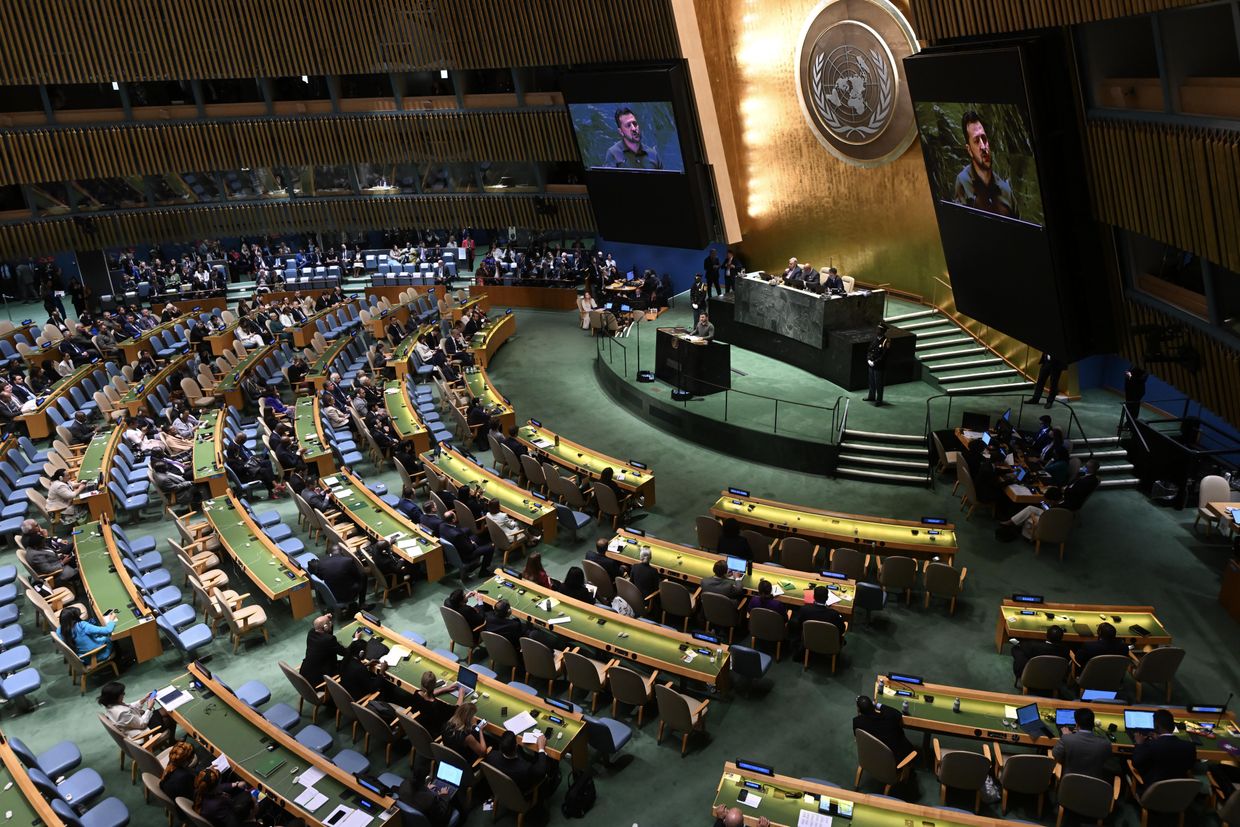Russia starts to chair UN Security Council in July, Ukraine not on agenda

Russia took over the presidency of the United Nations Security Council on July 1. Vasily Nebenzya, Russia's envoy to the U.N., said during a press briefing in New York that Ukraine is not on the agenda for this month.
Any member of the Security Council can propose the issue for consideration, Nebenzya added.
Each of the 15 members of the U.N. Security Council, including Russia, holds the presidency for a month. Russia last chaired the organization in April 2023.
At Moscow's initiative, the Security Council will discuss the conflict in the Middle East in July, particularly the situation in Palestine, Syria, Lebanon, and Yemen.
Nebenzya said that Russian Foreign Minister Sergei Lavrov will arrive in New York at the end of the month to participate in the Security Council meetings if "visa issues are resolved."
Answering journalists' questions about Donald Trump's promises to end the war between Russia and Ukraine "quickly," Russia's envoy to the U.N. said that it "cannot be resolved in one day."
A correspondent for Ukrainian news agency Ukrinform also asked Nebenzya about a recent Washington Post article claiming that Russia inadvertently dropped glide bombs on its own territory nearly 40 times in a year.
"Wouldn't you like to raise the issue of the security of the Russian population at the U.N. Security Council to protect it from its own armed forces?" the reporter asked.
Nebenzya replied that Ukraine and "its Western sponsors" are allegedly making up stories about how "Russia is bombing itself."
Several incidents of Russian munitions landing in the Belgorod region have previously been reported, most notably one in April 2023 that resulted in a massive crater in downtown Belgorod.
On May 12, an explosion led to the partial collapse of a Belgorod apartment building, killing 17 people. The Kremlin blamed the incident on a Ukrainian missile, but OSINT researchers concluded it was a Russian bomb.
A document obtained by the Washington Post suggests such events are far more widespread than previously thought, as many of the bombs do not explode and land in the less populated areas around the city, sometimes being discovered days later by farmers and park rangers.














